Win a Copy of This Crooked Way!
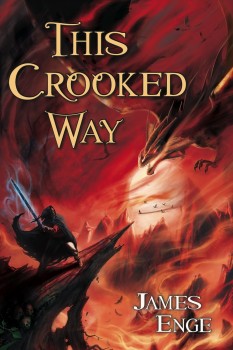 James Enge’s Morlock stories have been some of the most popular fiction we’ve published in Black Gate. His first Morlock novel, Blood of Ambrose, published by Pyr in April, was very warmly received, and described as “A future classic… this novel succeeds beautifully” (The Great Geek Manual) and “Like Conan as written by Raymond Chandler” (Paul Cornell).
James Enge’s Morlock stories have been some of the most popular fiction we’ve published in Black Gate. His first Morlock novel, Blood of Ambrose, published by Pyr in April, was very warmly received, and described as “A future classic… this novel succeeds beautifully” (The Great Geek Manual) and “Like Conan as written by Raymond Chandler” (Paul Cornell).
The second volume, This Crooked Way, went on sale October 6th. More than just a collection of previously published Morlock fiction, This Crooked Way has 15 chapters, only 5 of which have previously appeared. We’ve received a small number of advance copies, and we want to give them to you.
We’ve asked James Enge to compile a list of questions, the answers to which lie in the five Morlock stories that have appeared in Black Gate. The first five readers to fill out and submit the quiz below with the correct answers will receive a copy of This Crooked Way, compliments of Black Gate, James Enge, and Pyr.
The usual legal disclaimers apply: Offer void where prohibited. No purchase necessary. Must be 18 to enter. Judges decisions are final. Postage costs outside the US are the responsibility of the winner. Additional disclaimers apply as we think of them. Eat your vegetables.
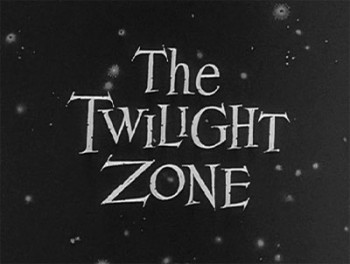
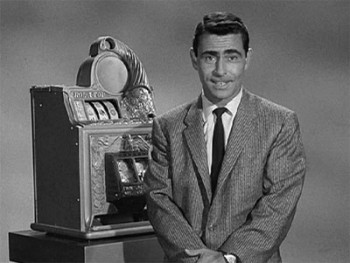 The place is here, the time is now, and the journey into the shadows that we’re about to watch could be our journey.
The place is here, the time is now, and the journey into the shadows that we’re about to watch could be our journey.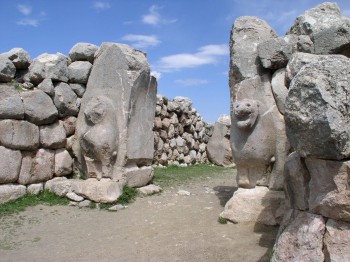 Hey, have you heard? Archie Andrews is going to marry Veronica Lodge. Good for him; I always had this thing for Veronica. I hope Archie isn’t in this only for the Lodges’ money. In celebration of this momentous moments of moments, I’m going to write about the Hittites.
Hey, have you heard? Archie Andrews is going to marry Veronica Lodge. Good for him; I always had this thing for Veronica. I hope Archie isn’t in this only for the Lodges’ money. In celebration of this momentous moments of moments, I’m going to write about the Hittites. Recently I received a bit of a surprise when I went to a local library that has long been one of my ambush zones for the acquisition of unsuspecting books. All those lovely 25 cent mass market paperbacks with the stickers on the spine, all those nicely broken-in trades, all those hardbacks with the covers mylared over and glued down, were gone. Vanished. Whisked away on an electron breeze to inhabit the alternate world of the internet.
Recently I received a bit of a surprise when I went to a local library that has long been one of my ambush zones for the acquisition of unsuspecting books. All those lovely 25 cent mass market paperbacks with the stickers on the spine, all those nicely broken-in trades, all those hardbacks with the covers mylared over and glued down, were gone. Vanished. Whisked away on an electron breeze to inhabit the alternate world of the internet.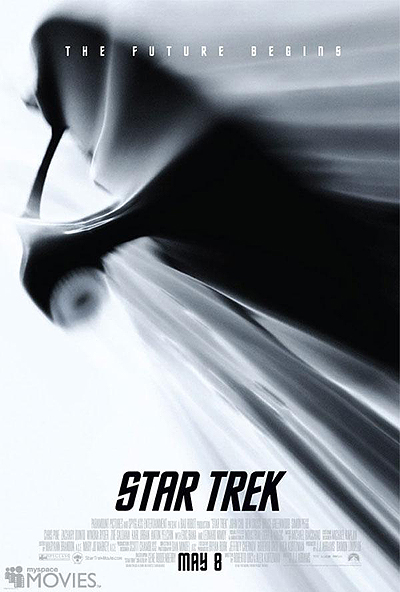 Star Trek (2009)
Star Trek (2009) In brainstorming topics for my ‘getting back on the horse’ return post here at Black Gate after my absence of a few months — I’ve come up with a few mildly interesting ideas. Firstly, I thought about looking at the nature of escapism, how it shouldn’t have the unfair pejorative connotation it does, and how it certainly isn’t limited to works of prose or film or video games designed solely to entertain. Then too I was considering a weird phenomenon I’ve only really just been made conscious of, that of how utterly mainstream fantasy, or, let’s say ‘the fantastic,’ has become just in the last few decades — and I mean aside from the obvious stuff like the popularity of fantasy and science fiction books and movies, but everything from television commercials and product packaging to childrens’ toys and popular expressions bear out the reality that the once distant worlds of speculative fiction are now familiar place names in the cultural atlas of modern life.
In brainstorming topics for my ‘getting back on the horse’ return post here at Black Gate after my absence of a few months — I’ve come up with a few mildly interesting ideas. Firstly, I thought about looking at the nature of escapism, how it shouldn’t have the unfair pejorative connotation it does, and how it certainly isn’t limited to works of prose or film or video games designed solely to entertain. Then too I was considering a weird phenomenon I’ve only really just been made conscious of, that of how utterly mainstream fantasy, or, let’s say ‘the fantastic,’ has become just in the last few decades — and I mean aside from the obvious stuff like the popularity of fantasy and science fiction books and movies, but everything from television commercials and product packaging to childrens’ toys and popular expressions bear out the reality that the once distant worlds of speculative fiction are now familiar place names in the cultural atlas of modern life.